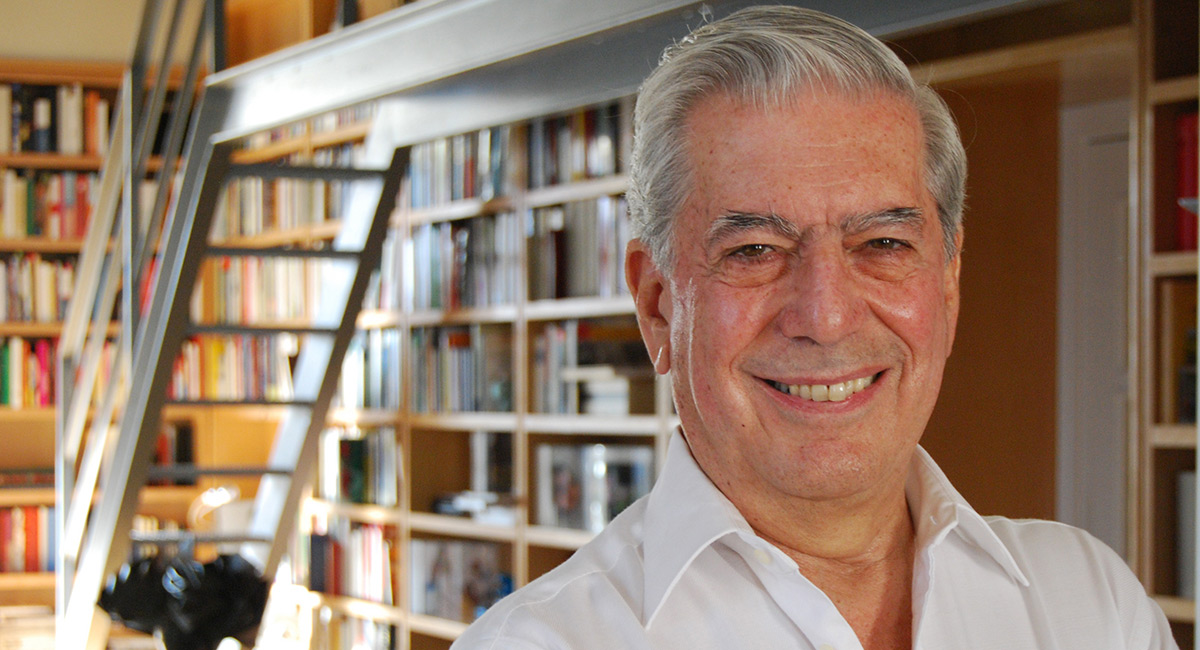I hope you will excuse this rare personal note.
Ten years ago I received a call from my father, Mario Vargas Llosa, telling me that he had won the Nobel Prize for Literature. I was glad to be finally freed from the damn question “Why haven’t they given him the Nobel Prize yet?”—almost as much as I was thrilled with the news.
I recently had the pleasure of holding a public dialogue with him to commemorate the tenth anniversary of the award, and the event got me thinking again about something I had pondered before. In 2019, on the occasion of a television series about his life, work, and political commitment, I traveled with him to the places and episodes of his biography. He was, at 83, fit enough to visit a dozen countries on both sides of the Atlantic and talk to me for hours on end. I found myself obsessing about two things. I wanted to better understand—through his personal story—what the essence of someone’s life is, what elements determine a life’s trajectory and which ones are secondary, and how they all combine to shape a person’s character, achievements, and failures. I also wanted to know whether, to understand the work of an author, it is indispensable to know in depth his life, passions, and heartbreaks, as well as the accidents and circumstances of his actions—the decisions he made and those that were forced on him.
Charles Sainte-Beuve, the famous 19th century French critic, wrote that it was essential to know the details of a writer’s life in order to understand his work. Marcel Proust, the fabled French novelist, argued in Against Sainte-Beuve the opposite: For Proust, a book is the product of a being very different from the one that manifests itself in the habits, social life, and vices of the writer; to understand an author’s work, one has to dig inside one’s own soul and the intimacy conveyed through the author’s work, rather than take into account his exterior world.
During our long journey, I did not reach final conclusions, but I did come to an intuition about both things. With regard to my father’s life trajectory, my intuition is that chance has played a much more important role than it seems. There is something deceptive about defining him through the milestones of his life—the trauma of finding out at the age of ten that his father was not dead and coming overnight under his authoritarian rule; the brutality of his military boarding school; his radical left-wing militancy at university; his voluntary exile from Peru; his ideological evolution from socialism to classical liberalism; his married and family life; his return to Peru; his failed presidential candidacy in a country terrorized by Shining Path, the Maoist organization; his subsequent and permanent exile in Europe; and the huge body of work that was woven year after year with the threads of that long, tempestuous life. Told like this, his tale has the appearance of a logical and predictable progression from starting point to climax. But this is a mirage. Will and talent explain many things, but not the infinite, unpredictable chain of causes and effects of his life, of anyone’s life.
My intuition about the other matter is that Sainte-Beuve was more right than Proust (the communicating vessels between my father’s work and his biography are patent), but there is something of an uncomfortable truth in what Proust said. Perhaps V.S. Naipaul explained it best in his own Nobel address: “No amount of documentation, however fascinating, can take us [to the mystery of the writing]. The biography of a writer...will always have this incompleteness.”
My father’s life has been very (sometimes scandalously) public, and the members of his tribe know it in even greater detail. But his work—even for those of us who know its sources and have witnessed its gestation—contains a lot of mystery that the events of his life do not explain. This observation, ten years after he rid me of the damn question, is my little tribute to him.













